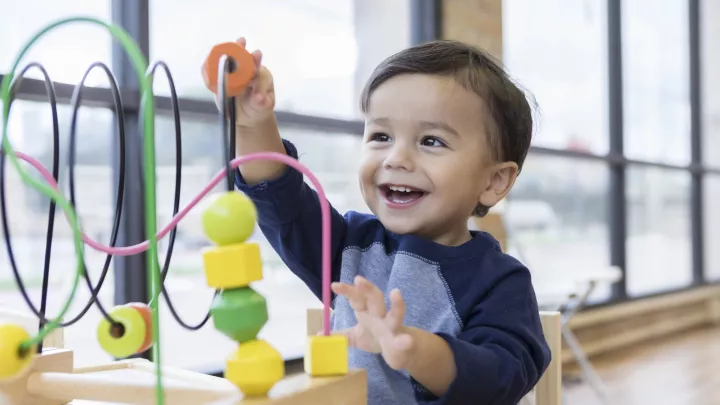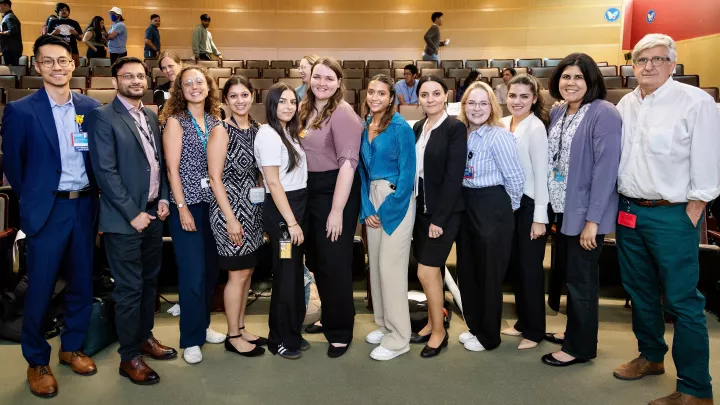KiNDD Lab: EEG Biomarkers of Language in Angelman syndrome (AS)
Study Summary
Most individuals with AS are non-verbal. Using behavioral and brain-based (EEG) measures in this study, we aim to develop assessment tools and identify biomarkers that do not rely on a child's ability to understand directions or produce an intentional response. Ultimately, we hope to understand whether EEG markers of language processing will be useful in future clinical trials of AS, enabling us to select participants for future studies and evaluate their responses to treatment.
Who can participate?
We are actively enrolling children 5-11 years old with a genetic diagnosis of AS, an autism spectrum disorder diagnosis, as well as typically developing children.
What does the study involve?
Study participation will include two visits, approximately two weeks apart:
Electroencephalogram (EEG)
EEG is a way for us to study the dynamics of neural networks and measure electrical activity in infant brains. The EEG will take approximately 15 minutes. Your child will wear a mesh cap with small, non-invasive sensors that measure brain signals while videos and sounds are played and images are shown.
Behavioral Assessments
Cognition and development of participants will be assessed at their first visit. These measures will be administered by a trained clinical psychologist.
Call to participate
Want to participate in a research study? Please email autismresearch@chla.usc.edu to get in touch with one of our study coordinators.


